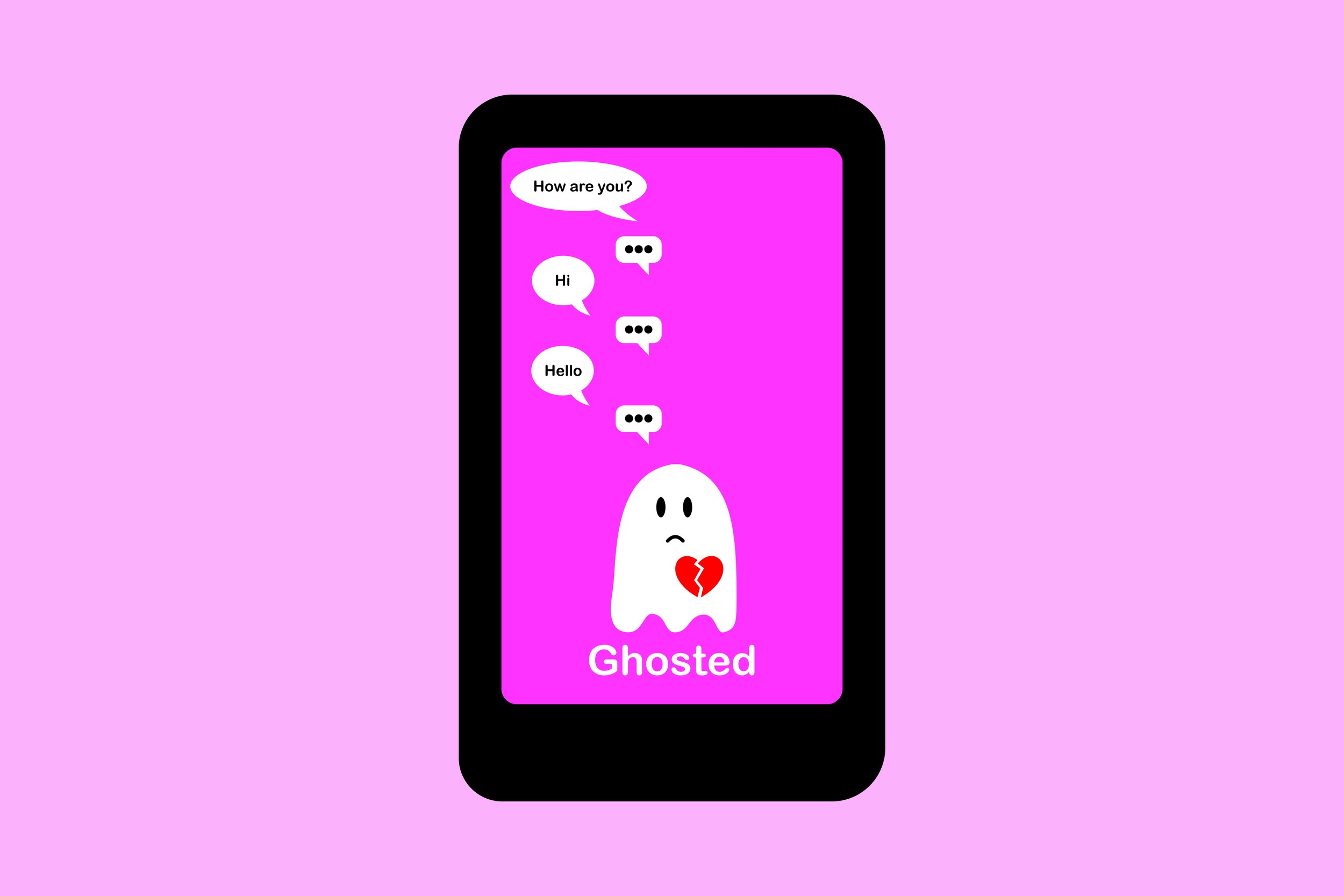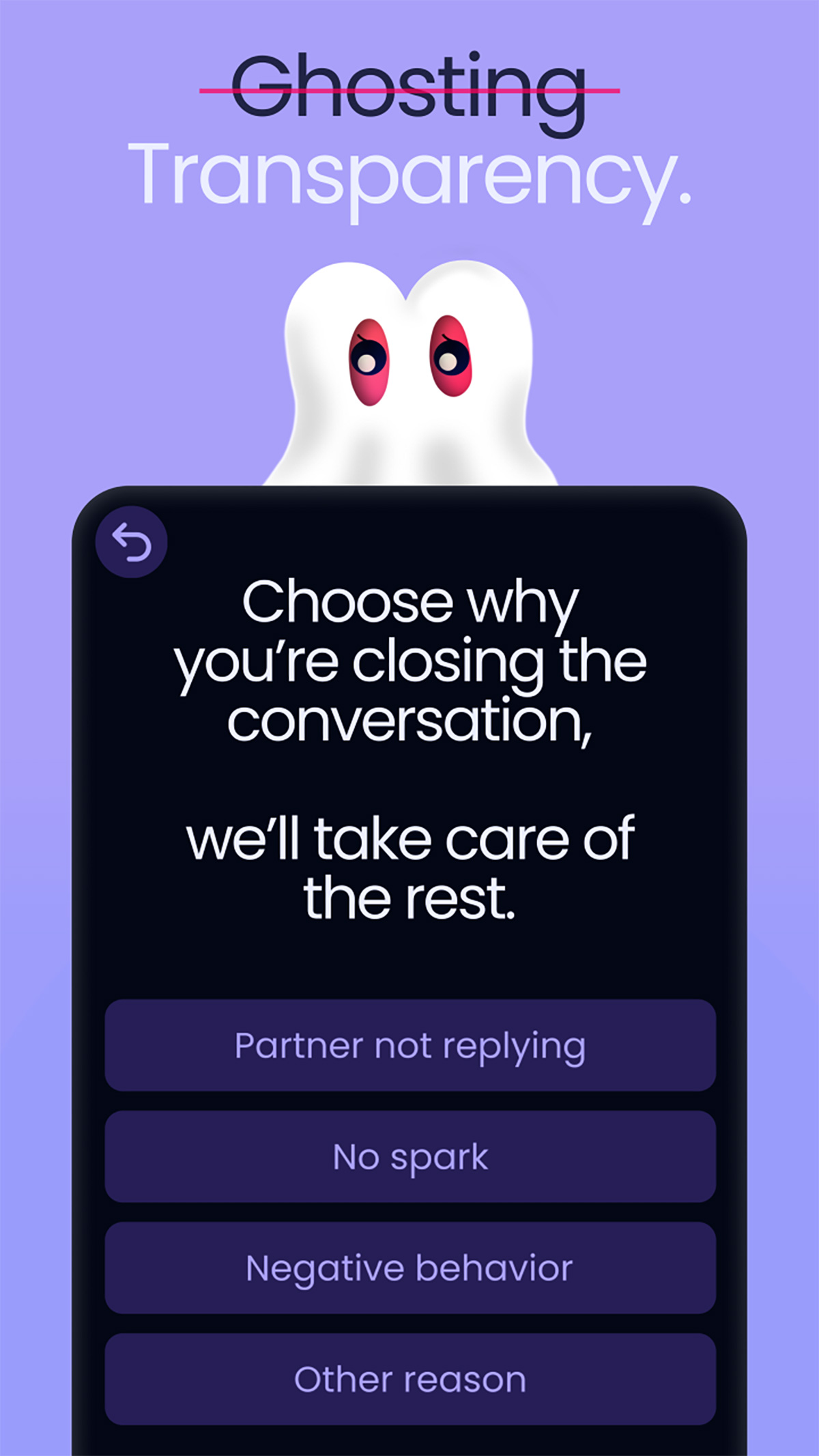
Understanding Online Dating Disappearing Acts
Online dating, although a popular way to meet potential partners, can also be fraught with challenges. One of the most common issues that many users encounter is ghosting. This phenomenon can often leave individuals puzzled and hurt, leading to a whirlwind of emotions and questions.
Definition of Ghosting in Online Dating
Ghosting is the act of suddenly ceasing all communication with someone, particularly in the context of dating. Imagine you’ve been chatting with someone for weeks, sharing personal stories, exchanging laughter, and building what you believe is a meaningful connection. Then, just like that, they vanish. No texts, no social media interactions, nothing. Ghosting occurs when one party decides to cut ties without any explanation, leaving the other person feeling suddenly abandoned.
It’s a phenomenon that has become prevalent in our digital age due to the ease and anonymity that online platforms provide. Ghosting can happen at various stages of the dating process—before a first date, after a few dates, or even after establishing a more serious relationship.
For many, experiencing ghosting can be disheartening. Users often wonder what they did wrong, why the other person decided to disappear, or if they ever truly cared. It’s a daunting and confusing experience that many in the online dating scene can relate to.
Common Reasons for Ghosting
While ghosting can be painful, it’s critical to understand that it doesn’t always reflect a failing on your part. There are numerous reasons why someone might choose to ghost, and these reasons can be as varied as the individuals involved. Here are some common motivations behind ghosting:
- Fear of Confrontation: Many people feel uncomfortable with direct communication, especially when it involves uncomfortable topics such as ending a relationship. Instead of addressing their feelings, they opt to disappear.
- Lack of Interest: Sometimes, a person may realize that they are not as interested in continuing the relationship as they initially thought. Rather than articulating this, they may choose to ghost.
- Overwhelm: The online dating landscape can be overwhelming with many choices and encounters. Some individuals may feel swamped and prefer to retreat rather than continuing to engage with numerous connections.
- Personal Issues: Ghosting can sometimes stem from personal struggles that a person is experiencing. They may be dealing with stress, mental health challenges, or life changes that make them feel unprepared for dating.
- Desire for Freedom: Some people simply prefer the idea of casual dating without the commitment. When the relationship appears to be heading in a more serious direction, they might ghost out of a desire to maintain their freedom.
- Ghosting as a Cultural Norm: In some circles, ghosting is almost seen as an acceptable way to end a connection. Given how casual online dating can be, some individuals see ghosting as a preferable option, avoiding “the talk” altogether.
In essence, understanding that ghosting is a common occurrence in online dating can help mitigate the sting of the experience. It allows individuals to realize that it’s often more about the other person’s issues than their own worth. As users navigate through the online dating landscape, keeping these common reasons in mind may offer perspective and even solace.
In conclusion, while ghosting can hurt, it’s essential to focus on your emotional well-being and acknowledge that sometimes, people’s actions are a reflection of their own struggles rather than your value or desirability. The next time you encounter someone disappearing, remind yourself that you deserve more, and it is okay to seek clarity and respect in your dating experiences.

Signs That You’re Being Ghosted
Once you’ve grasped the definition and reasons behind the ghosting phenomenon, the next step is recognizing the signs that you may actually be on the receiving end of this vanishing act. It can be an unsettling realization, as it often leaves individuals doubting themselves and their experiences. However, being able to identify the red flags will empower you to respond in a more informed manner.
Red Flags to Look Out For
The first signal that you might be facing ghosting is a significant change in communication patterns. Here are some red flags to keep an eye out for:
- Delayed Responses: If you notice that the other person used to respond promptly but has now taken longer and longer to reply, this could indicate a lack of interest. While everyone has busy moments, consistently delayed responses can be a warning sign.
- One-Sided Conversations: Relationships should involve a balance of give-and-take. If you find yourself doing all the talking and making all the efforts to engage, it’s worth considering whether they are truly invested.
- Avoidance of Future Plans: If you mention wanting to meet up or make plans that include both of you, but the other party deflects those conversations or seems uninterested, this could indicate they may not want to continue the connection.
- Changes in Tone: Keep an eye on the tone of their messages. If it shifts from engaging and excited to short and distant, this can be a clear signal of waning interest.
- Lack of Engagement on Social Media: Many couples or dating partners connect or interact on social media. If you notice that the person doesn’t respond to your posts or has suddenly stopped liking or commenting, it can be a red flag.
These signs may not guarantee that someone is ghosting you, but they certainly warrant further observation.
How to Differentiate Ghosting from Busy Schedules
Before jumping to conclusions and branding someone as a “ghoster,” it’s essential to consider that everyone leads busy lives. It’s possible that the other person is genuinely preoccupied with personal or professional commitments. Here’s how you can differentiate ghosting from just being busy:
- Assess the Frequency of Communication: Look back at your interactions. If they’ve gone silent for a few days but previously kept in touch consistently, they may simply be caught up with something. Everyone has busy weeks or days; life gets in the way.
- Check for Consistent Patterns: Has the individual communicated to you about their busy schedules or life events? If they’ve mentioned upcoming work deadlines, family responsibilities, or other commitments, this context can help you understand their absence better.
- Give It a Week or Two: Sometimes, all it takes is a little time. People genuinely get sidetracked, and a little patience can often reveal that the other person wasn’t ghosting but simply caught up in the busyness of life.
- Reach Out to Confirm: If you’ve been feeling uncertain, it’s entirely reasonable to send a friendly message checking in. A simple, “Hey, I hope everything is okay! I noticed it’s been a while since we chatted,” can often clear up misunderstandings.
- Observe Their Responses: When you reach out, pay attention to how they respond. If they explain their absence, engage with your message, and make an effort to reconnect, it’s a good indication that they are simply busy rather than ghosting. Conversely, if they give vague responses or continue to disengage, it could signify a lack of interest.
By maintaining open communication and being aware of the signs, individuals can navigate the tricky waters of online dating with greater ease. It’s vital to remember that life doesn’t always follow a predictable route, and uncertainties can stem from many different places. Taking a step back to assess the situation may provide clarity and help in deciding how to move forward.

Coping Mechanisms
Finding out you’ve been ghosted can leave anyone feeling emotionally drained. The feeling of rejection can bring up various emotions, from confusion to anger, and even self-doubt. However, it’s important to focus on coping mechanisms that can help individuals bounce back and regain their emotional resilience after experiencing this phenomenon.
Maintaining Emotional Resilience
Emotional resilience is the ability to adapt and recover from difficult experiences. When faced with the sting of ghosting, developing this resilience is vital. Here are some strategies individuals can employ:
- Acknowledge Your Feelings: It’s normal to feel hurt, frustrated, or even angry when someone disappears from your life without explanation. Rather than suppressing these emotions, allow yourself to experience them. Journaling about your feelings can provide an excellent outlet for emotional expression.
- Practice Self-Compassion: Remember to treat yourself as you would a friend. If a friend were to come to you feeling hurt after being ghosted, you would likely offer words of kindness and encouragement. Use that same compassion for yourself. Recognize that being ghosted does not diminish your worth or value as a person.
- Engage in Self-Care: Take time for activities that make you feel good. This could include:
- Exercising: Physical activity releases endorphins, improving your mood.
- Hobbies: Dive into a favorite hobby or try something new to redirect your energy.
- Mindfulness Practices: Meditation and yoga can help calm your mind and promote a sense of inner peace.
- Set Realistic Expectations: It’s essential to remember that not every budding relationship will flourish. Understanding that ghosting is relatively common can help you prepare for unexpected outcomes in your dating journey.
- Limit Social Media Exposure: While it can be tempting to check the profiles of those who ghosted you, doing so may exacerbate feelings of distress. Consider taking a break from social media or unfollowing accounts that trigger negative emotions.
By embracing these practices, individuals can better navigate the emotional turmoil that follows ghosting, ultimately fostering a healthier perspective towards future relationships.
Seeking Support from Friends or Professionals
In addition to fostering emotional resilience, seeking support from friends or professionals can play a crucial role in healing. It’s important to surround yourself with individuals who uplift and inspire you. Here are some avenues to explore:
- Talk to Friends: Sharing your experience with close friends can provide comfort and validation. Often, friends can offer different perspectives or humorous takes on your situation, helping to lighten the emotional load.
- Join Support Groups: Consider finding local or online support groups where individuals share their dating experiences. Connecting with others who have faced similar circumstances can create a sense of community, reducing feelings of isolation.
- Engage in Professional Counseling: If feelings of rejection linger or lead to signs of anxiety or depression, seeking professional help can be incredibly beneficial. Therapists can provide strategies to cope with feelings of loneliness and improve self-esteem.
- Practice Active Listening: If you have friends who confide in you about their experiences, practice active listening. By offering emotional support to others, you may find that it helps you process your own feelings as well.
- Educate Yourself: Reading books or articles on emotional recovery can also provide insight into strategies for moving on effectively. Learning from experts can empower you to handle future challenges with a stronger mindset.
Ultimately, coping with ghosting is about finding healthy outlets for understanding and managing your feelings. By nurturing emotional resilience and seeking support, individuals can transition from the pain of ghosting to a more positive perspective on dating. As they learn to navigate this often tumultuous journey, they can emerge more confident and better prepared for future connections.

Communication Strategies
After navigating the emotional turmoil of ghosting and finding ways to cope, the next step is to focus on communication strategies. Effective communication can help clarify misunderstandings and create healthier connections in the future. Whether addressing a ghosting situation head-on or setting boundaries for personal well-being, the following strategies can make a significant difference.
Addressing the Issue Directly
Confronting someone who has ghosted you can be intimidating. However, having an open and honest conversation can offer closure and clarity, not only for your peace of mind but for the other party as well. Here’s how to do it effectively:
- Choose the Right Platform: If you have the option, a face-to-face conversation or a video call can be more effective than texting. This allows for immediate feedback and the ability to read nonverbal cues—crucial elements often lost in written communication.
- Stay Calm and Composed: Approach the conversation without anger or accusation. An example of a gentle introduction might be, “I’ve noticed our communication has changed, and I’d like to understand what’s going on.”
- Express Your Feelings: Use “I” statements to convey your emotions without placing blame. For example, “I felt confused when our chats suddenly stopped, and I want to know if everything is okay.” This invites the other person to share their perspective without feeling defensive.
- Be Open to Their Response: While you may have your own expectations, be prepared to listen to their side. Sometimes, people ghost due to personal issues or overwhelming situations. Understanding their perspective may provide valuable insight into the situation.
- Know When to Walk Away: If the person continues to be evasive or dismissive, recognize that closure may not always be achievable. It’s okay to acknowledge the conversation hasn’t provided the answers you sought and choose to move forward without extended discourse.
Addressing a ghosting situation directly can sometimes be cathartic, providing clarity on what went wrong or reaffirming that their behavior isn’t a reflection of your worth.
Setting Healthy Boundaries
Setting boundaries is a vital yet often overlooked aspect of navigating the dating landscape. By establishing clear parameters, individuals can protect their emotions and foster healthier relationships. Here are some ways to effectively set limits:
- Know Your Limits: Before entering any relationship, take time to reflect on what you are comfortable with. Understanding your emotional needs helps articulate those boundaries clearly to potential partners.
- Communicate Boundaries Early: Timing is everything. Sharing your boundaries early in the dating process can set the tone for open communication. For instance, if it’s important for you to have regular check-ins while dating, express this from the outset.
- Be Firm but Respectful: When discussing your boundaries, approach the topic with kindness but be firm in your stance. For example, you might say, “I appreciate the time we spend together, but I need regular communication to feel comfortable progressing in our connection.”
- Reevaluate Regularly: Relationships evolve, as do individual needs. Periodically assessing and discussing boundaries with your partner ensures both parties feel secure and heard. It also opens the door for revising those boundaries as the connection deepens or changes.
- Respect Their Boundaries: Just as you communicate your own boundaries, be sure to respect the boundaries set by others. This mutual understanding can foster a more trusting and open relationship dynamic.
By employing communication strategies that focus on directness and healthy boundaries, individuals can develop a more robust framework for their dating lives. These strategies not only help in managing expectations but also allow for more balanced and respectful connections.
Ultimately, open communication fosters emotional health and strengthens relationships, ensuring that individuals are not just navigating dating, but thriving within it. As they continue to hone these skills, they’ll find themselves better equipped to handle the complexities of relationships—be it a budding romance or a simple friendship.

Moving On Positively
Once the dust settles from the experience of being ghosted, it’s essential to focus on moving forward in a healthy and constructive way. Shifting perspectives and embracing growth can pave the way for more fulfilling connections in the future. By engaging in self-reflection and nurturing an optimistic outlook, individuals can transform past experiences into opportunities for personal development.
Self-Reflection and Growth
Self-reflection is a powerful tool, enabling individuals to learn from their experiences and grow emotionally. It’s the process of taking a step back and assessing one’s thoughts, feelings, and reactions. Here’s how to effectively engage in self-reflection:
- Journal Your Thoughts: Writing down your feelings after being ghosted can serve as a therapeutic release. You might start with prompts such as:
- What were the signs I noticed before the ghosting?
- How did it make me feel?
- What lessons can I take from this experience?
Journaling can help clarify emotions and uncover insights about personal patterns in relationships.
- Identify Patterns: When reflecting, consider past relationships and interactions. Are there similar themes, habits, or red flags that keep recurring? Recognizing patterns can help individuals break cycles, avoiding similar situations in the future.
- Focus on Personal Values: Take stock of what you value most in a relationship. This might include communication, respect, and shared interests. Understanding your fundamental values can inform future dating choices and highlight what you need from potential partners.
- Embrace the Learning Curve: Each experience—good or bad—offers lessons. Rather than dwelling on pain, focus on the insights gained from being ghosted. For instance, you might recognize the importance of early communication in relationships, ensuring both parties have aligned expectations.
- Set Future Intentions: Based on your reflections, set intentions for future relationships. This could involve being more assertive in communicating needs or prioritizing people who reciprocate your efforts. Intentions can provide motivation and direction as you navigate the dating landscape.
Through this self-reflection process, individuals can turn the challenges of ghosting into valuable experiences that fuel personal growth and development.
Staying Optimistic for Future Connections
While moving on can be difficult, maintaining an optimistic outlook about future connections is crucial. A positive perspective can open doors to new opportunities and foster healthier relationships. Here are some strategies to cultivate optimism:
- Practice Gratitude: Reflect on positive experiences in your life, friends who support you, or lessons learned. Maintaining a gratitude journal can shift your mindset from focusing on missed connections to appreciating existing ones and looking forward to future possibilities.
- Visualize Successful Relationships: Take time to envision the type of relationships you desire. Picture yourself in fulfilling connections characterized by mutual respect, understanding, and enjoyment. Visualization can help set the stage for manifesting those experiences in reality.
- Engage in New Activities: Explore new hobbies or meet people in different social settings, such as clubs, classes, or volunteer groups. Engaging in activities you love not only fills your time with joy but also increases the likelihood of meeting like-minded individuals.
- Surround Yourself with Positivity: The people you interact with can greatly influence your mindset. Spend time with friends who uplift you, share uplifting stories, and celebrate your successes—even the small ones! Their positive energy can inspire resilience and confidence.
- Embrace Your Journey: Understand that dating is often a journey filled with ups and downs. Embrace each moment as part of the path rather than getting discouraged by setbacks. Keep in mind that every interaction has the potential to lead to growth.
As the journey continues, remaining optimistic can transform the narrative surrounding past ghosting experiences. With self-reflection fueling personal insight and positivity anchoring the path forward, individuals will find themselves better prepared for future connections.
Ultimately, moving on positively is about reclaiming personal power, cultivating an enriching mindset, and being open to the abundance of relationships yet to come. With these foundations, individuals can step confidently into new adventures, knowing that each chapter brings new lessons and the chance for invaluable connections.
